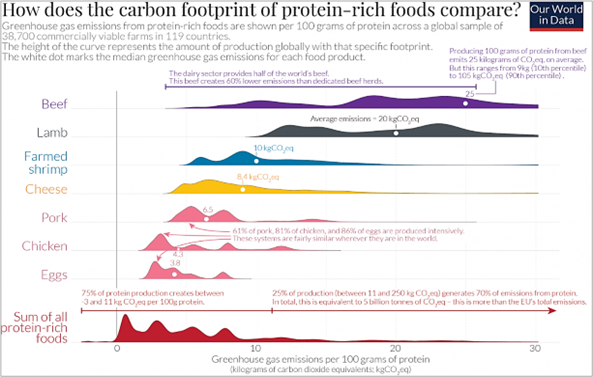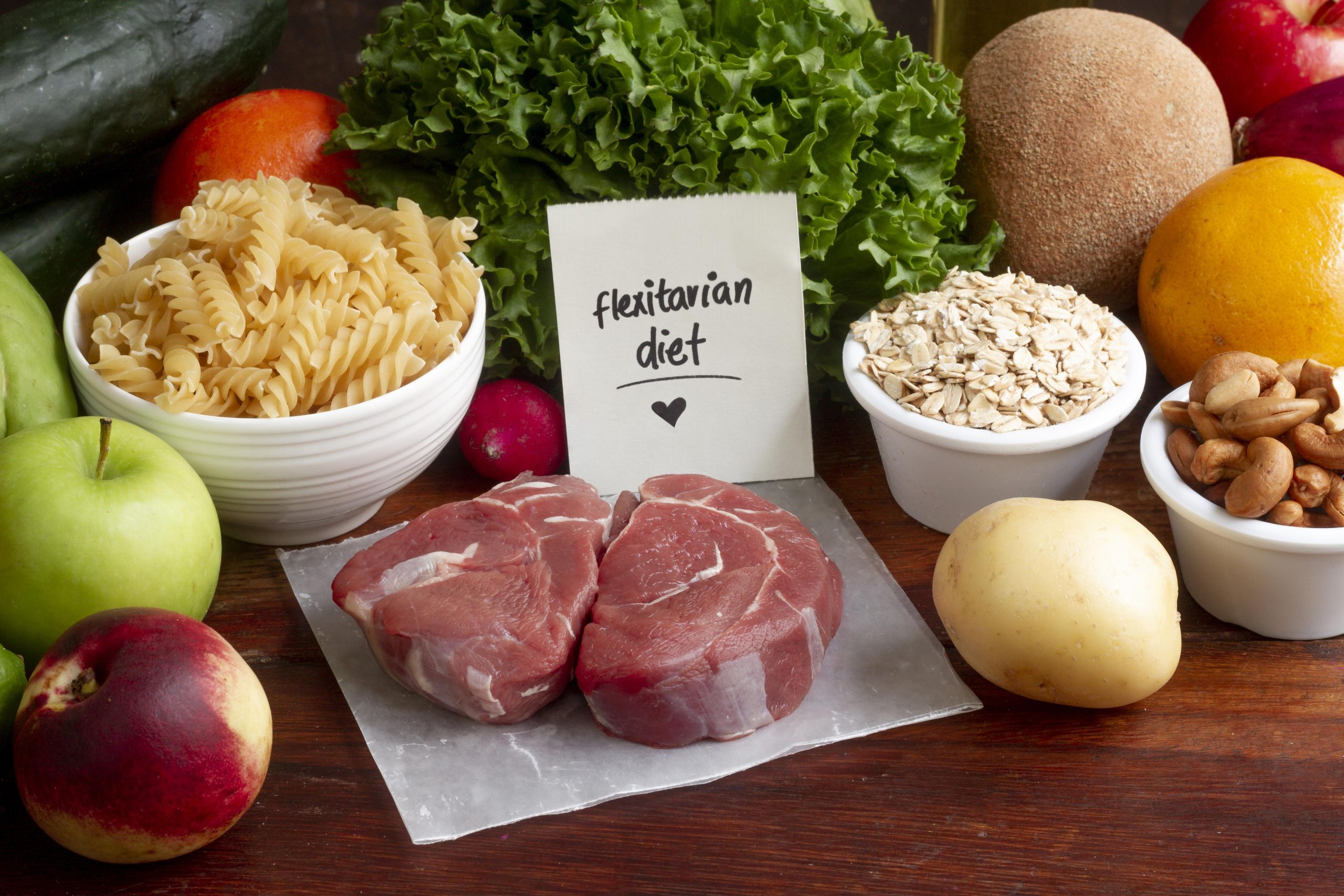Healthy People, Healthy Planet
The use of plant-based diets is increasing worldwide. Regular meat eaters are looking in reducing to moderate consumption of meat or fish due to safety and health concerns4. According to a survey by FMCG Gurus, 45% of regular meat eaters are looking to modify their meat consumption over the next twelve months while 22% of consumers say they plan to increase plant-based food intake because of COVID-194.
Adopting a plant-based diet is said to be an excellent way to increase health since it can reduce the risk of non-communicable diseases mainly cardiovascular disease, type 2 diabetes, obesity, and cancer compared with that of nonvegetarian diets5. This transition toward plant-based diets is aligned with standard dietary guidelines which could help to reduce global mortality by 6–10%11.
From an environmental perspective, going vegan or eating less meat in our diets can contribute significantly to our more sustainable economies13. By shifting toward more plant-based diets, it can lower the impact of food production on the climate and contribute to improve food security for future generations12. Apart from that, the exclusion of all animal-based products showed a reduction in premature mortality of 22% on average and a reduction of food-related greenhouse gas emissions of 82%6. Our World in Data’s research showed that producing 100g of beef emits an average of 25kg of CO2 equivalents. Lamb and farmed shrimp are other major emitters8.

Flexitarians vs Pescatarian

A flexitarian diet (FD) is a combination of the words “flexible” and “vegetarian” and refers to a diet where consumers reflect as “meat-reducers.” They mainly eat vegetarians but occasionally eat meat which includes red meat, poultry, seafood, and fish4. This diet is meant to be flexible and can be adapted to local and regional contexts, culinary or cultural traditions, and personal dietary preferences. Also, there is no firm definition as to how much meat they should eat during the week, whether it’s once a day, once a week, or occasionally, because this diet is up to the individual person7.
Flexitarian or semi-vegetarian diets could also be useful in helping those with high meat intakes to fall in line with recommended guidelines3. For example, data from the UK National Diet and Nutrition Survey showed that red and processed meat intakes were 84 g/day for men and 47 g/day for women1. Normally this group may choose free-range, organic, and other options that favour the ethical treatment of animals3,7.

Pescatarians are defined as those who maintain a vegetarian diet with the addition of fish and other seafood like shrimp, mussels, salmon, crabs, and lobster but abstain from eating all meat and animal flesh (like red meat and poultry)7. Pescatarians are likely to follow their diets because they believe or are morally motivated that fish is healthful 1. According to a study conducted, approximately 41% of pescatarians did not consider fish to be a type of meat10.
Pescatarians also allowed beans and legumes like tofu and tempeh, grains, fruits, and dairy products which are high in Omega-3 fatty acids that necessary part of someone’s diet7. Moreover, a study showed that pescatarians can lower the risk of overall cancer by 9% when compared with meat-eaters9.
Take Home Messages
Shifting away from meat-heavy diets towards diets containing more plant-based foods is broadly beneficial to both planetary and personal health, ethical and moral reasons, or also religious beliefs concerns. Ultimately, the goal is for people to embrace a balanced and diverse diet that meets individual nutritional needs. However, before choosing any diet, it is important to understand its nutritional benefits, potential drawbacks, and suitable food preferences.
References
1Bates B, Lennox A, Prentice A, Bates C, Page P, Nicholson S, et al. National Diet and Nutrition Survey Results from Years 1, 2, 3 and 4 (Combined) of the Rolling Programme (2008/2009 – 2011/2012). (2016). Available from: http://www.gov. uk/government/statistics/ national-diet-and-nutrition-survey-results-from years-1-to-4-combined-of-the-rolling-program-for-2008-and-2009-and-2012.
2Dagevos H, Voordouw J. Sustainability and meat consumption: is reduction realistic? Sustainability Sci Pract Policy (2013) 9(2):60–9.
3Derbyshire, E. J. (2017). Flexitarian diets and health: A review of the evidence-based literature. Frontiers in Nutrition, 3. https://doi.org/10.3389/fnut.2016.00055
4FMCG Gurus. (2022). Addressing the need for fortification in plant-based meat and fish alternatives in Europe, Africa and Middle East. Industry Report.
5Groufh-Jacobsen, S., Bahr Bugge, A., Morseth, M. S., Pedersen, J. T., & Henjum, S. (2022). Dietary habits and self-reported health measures among Norwegian adults adhering to plant-based diets. Frontiers in Nutrition, 9. https://doi.org/10.3389/fnut.2022.813482
6Klapp, A.-L., Feil, N., & Risius, A. (2022). A global analysis of National Dietary Guidelines on plant-based diets and substitutions for animal-based foods. Current Developments in Nutrition, 6(11). https://doi.org/10.1093/cdn/nzac144
7McRae, L. (2019). Vegan, Vegetarian, Pescatarian, Flexitarian and Macrobiotic Diets – What’s the Difference? Northshore University Healthsystem. Available at https://www.northshore.org/healthy-you/vegan-flexitarian-vegetarian-pescatarian-and-macrobiotic-diets–whats-the-difference/
8Our World in Data. (2020). Less meat is nearly always better than sustainable meat, to reduce your carbon footprint.
9Parra-Soto, S., Ahumada, D., Petermann-Rocha, F., Boonpoor, J., Gallegos, J. L., Anderson, J., Sharp, L., Malcomson, F. C., Livingstone, K. M., Mathers, J. C., Pell, J. P., Ho, F. K., & Celis-Morales, C. (2022). Association of meat, vegetarian, pescatarian and fish-poultry diets with risk of 19 cancer sites and all cancer: Findings from the UK biobank prospective cohort study and meta-analysis. BMC Medicine, 20(1). https://doi.org/10.1186/s12916-022-02257-9
10Rosenfeld, D. L., & Tomiyama, A. J. (2019). How proximal are pescatarians to vegetarians? An investigation of dietary identity, motivation, and attitudes toward animals. Journal of Health Psychology, 135910531984293. https://doi.org/10.1177/1359105319842933
11Springmann, M., Godfray, H. C., Rayner, M., & Scarborough, P. (2016). Analysis and valuation of the health and climate change cobenefits of dietary change. Proceedings of the National Academy of Sciences, 113(15), 4146–4151. https://doi.org/10.1073/pnas.1523119113
12Willett, W., Rockström, J., Loken, B., Springmann, M., Lang, T., Vermeulen, S., Garnett, T., Tilman, D., DeClerck, F., Wood, A., Jonell, M., Clark, M., Gordon, L. J., Fanzo, J., Hawkes, C., Zurayk, R., Rivera, J. A., De Vries, W., Majele Sibanda, L., … Murray, C. J. (2019). Food in the anthropocene: The eat–lancet commission on healthy diets from sustainable food systems. The Lancet, 393(10170), 447–492. https://doi.org/10.1016/s0140-6736(18)31788-4
13World Economic Forum. (2022). Vegan, vegetarian or flexitarian? 3 ways to eat more sustainably (n.d.) Available at https://www.weforum.org/agenda/2022/10/vegan-plant-based-diets-sustainable-food/ (Accessed: 20 June 2023).


